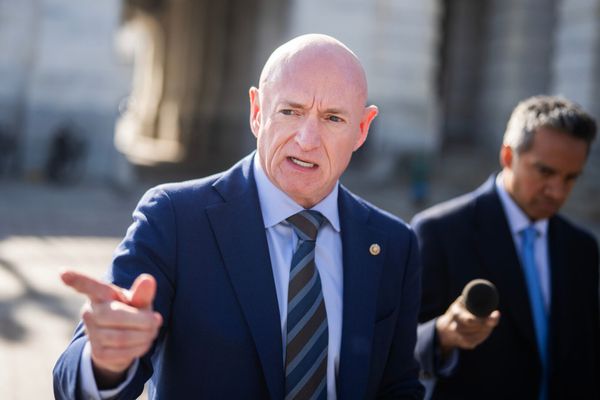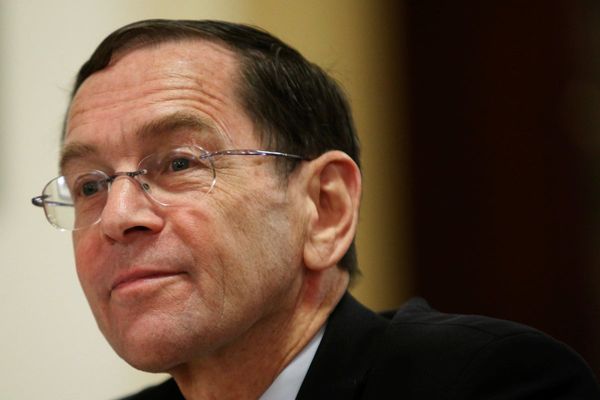
Less than three months after Russian troops moved across the border into Ukraine the economic implications of the war are gradually sinking in. There have been other conflicts since 1945 but it is hard to think of one that has had such a dramatic and sudden impact. The only real comparison is with the Yom Kippur war of 1973.
Support for Ukraine has been widespread in the west, among governments and the public, but only now are the consequences of sanctions and embargos starting to be felt. This week, the US Federal Reserve and the Bank of England raised interest rates in the face of annual inflation rates heading towards 10%. The European Central Bank will follow suit in the months to come.
The threat of recession is obvious. Central banks say they are powerless to prevent rising global energy prices from pushing up the cost of living but think they can prevent high inflation becoming embedded. The former chancellor of the exchequer Norman Lamont once said higher unemployment was a “price worth paying” to get inflation under control, and that sentiment lives on.
Last year, central banks assumed inflationary pressure would be temporary. There would be bottlenecks as demand picked up as countries came out of lockdown and supply struggled to keep up, but any problems would soon go away. Analogies were drawn with the audience leaving a theatre at the end of a play: there is a crush at the exits but it doesn’t take long before everybody is out on the streets.
Actually, things were a bit more complex than that, with more pent-up demand resulting from the lack of spending opportunities during the coronavirus pandemic than central banks thought and more impaired supply chains. The imbalance between demand and supply has since been exacerbated by two factors – the war in Ukraine and China’s zero-tolerance approach to Covid 19 – but it was already pushing up inflation in the second half of 2021.
These global shocks are affecting countries in different ways. As the Bank’s governor, Andrew Bailey, pointed out this week, the US is facing what looks like a demand shock, with a tight labour market, strong consumer spending and less exposure to energy prices as a result of being a major gas producer. The euro area is suffering a supply shock because it has a weaker labour market than the US and is more exposed to the rise in energy prices. Britain has elements of both: it is suffering a supply shock from the rising cost of energy and food but, like the US, has low unemployment.

Everywhere, though, the story is one of higher inflation, slower growth and hard choices for policymakers. Olaf Scholz, the German chancellor, has faced criticism for wanting to limit the damage to his country’s economy from the war. In truth, he is merely posing an obvious question: how much pain can governments impose on their populations before support begins to wane?
That question is only to get more pertinent as the collateral damage mounts. For the moment, the impact of the war is being cushioned by the opening up of economies as the Omicron variant of Covid 19 becomes less of a threat. Unemployment will continue to fall in the US, the UK and the euro area for some months. The going gets tougher thereafter.
The end of the cold war in the early 1990s allowed governments in the west to run down defence spending and reallocate the money elsewhere. Fewer tanks and warships meant more could be spent on health and education without taxes having to rise. If, as seems likely, the cold war is back, harder choices will need to be made, and at a time when ageing populations are intensifying pressures for higher spending.
There are other long-term implications of the war. The EU is having to develop a new energy strategy on the hoof as it weans itself off Russian oil and gas. Long global supply chains look less attractive than they did pre-Covid, and self-sufficiency is back in vogue. Both factors threaten to lead to higher prices, at least in the short-term.
Clearly, getting policy right in these circumstances is not easy and tricky decisions face central banks and finance ministries. Central banks will suffer a loss of credibility if they allow an inflationary spiral to take hold but monetary overkill that drives their economies deeper into recession won’t do much for their reputations either.
The real onus, though, is on finance ministers because fiscal policy – tax and spending decisions – is more effective in the current circumstances than monetary policy.
In the UK, Rishi Sunak, seems in no hurry to add to the limited support he provided in the spring statement, preferring to wait for the autumn budget to act. Pressure for a summer mini-budget is bound to increase, however, because by August a new energy price cap will be announced to come into force in October. This looks like adding a further £800 a year to the average household’s bill, taking it to about £2,800. Millions more will be driven into fuel poverty.
It is not a question of if there is more help but how generous that support is and when it will be rolled out. It is unrealistic for governments to imagine that support for Ukraine will continue at its current elevated levels when dole queues start to lengthen and living standards really begin to be eroded.
There is a quid pro quo here: if foreign policy is to remain hawkish towards Russia, then domestic policy has to turn more doveish to help those most affected by the economic consequences of the war.







